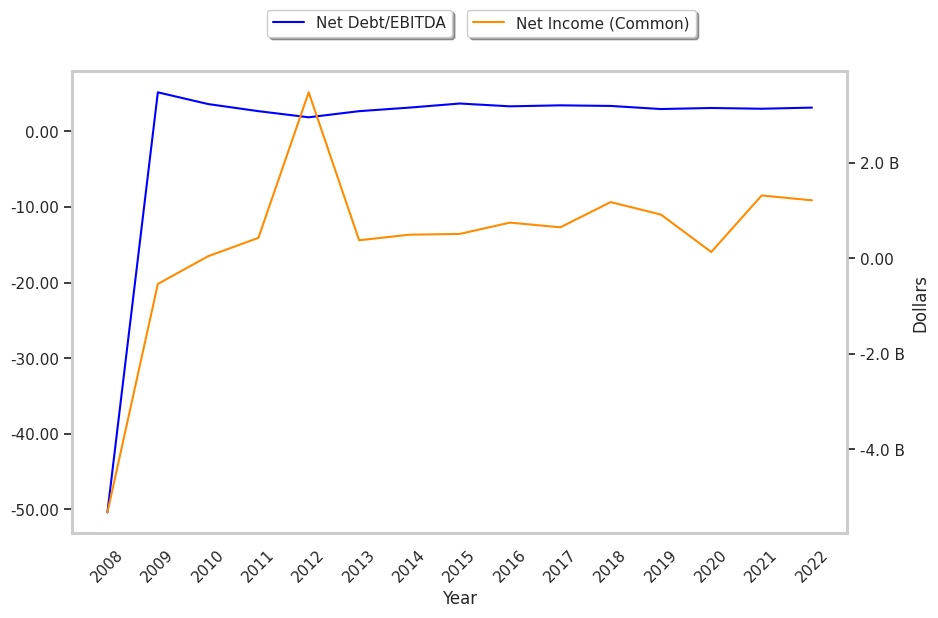Standing out among the Street's worst performers today is Sirius XM, a broadcasting company whose shares slumped -4.3% to a price of $4.33, 11.73% below its average analyst target price of $4.9.
The average analyst rating for the stock is hold. SIRI lagged the S&P 500 index by -4.0% so far today and by -43.0% over the last year, returning -26.0%.
Sirius XM Holdings Inc., an audio entertainment company, operates audio business including subscription entertainment services in the United States. The company is a consumer cyclical company, whose sales figures depend on discretionary income levels in its consumer base. For this reason, consumer cyclical companies have better sales and stock performance during periods of economic growth, when consumers have more of an incentive to spend their money on non-essential items.
Sirius XM's trailing 12 month P/E ratio is 14.4, based on its trailing EPS of $0.3. The company has a forward P/E ratio of 13.5 according to its forward EPS of $0.32 -- which is an estimate of what its earnings will look like in the next quarter. As of the first quarter of 2023, the average Price to Earnings (P/E) ratio for US consumer discretionary companies is 22.33, and the S&P 500 has an average of 15.97. The P/E ratio consists in the stock's share price divided by its earnings per share (EPS), representing how much investors are willing to spend for each dollar of the company's earnings. Earnings are the company's revenues minus the cost of goods sold, overhead, and taxes.
It’s important to put the P/E ratio into context by dividing it by the company’s projected five-year growth rate. This results in the Price to Earnings Growth, or PEG ratio. Companies with comparatively high P/E ratios may still have a reasonable PEG ratio if their expected growth is strong. On the other hand, a company with low P/E ratios may not be of value to investors if it has low projected growth.
Sirius XM's PEG ratio of 2.0 indicates that its P/E ratio is fair compared to its projected earnings growth. Insofar as its projected earnings growth rate turns out to be true, the company is probably fairly valued by this metric.
To understand a company's long term business prospects, we must consider its gross profit margins, which is the ratio of its gross profits to its revenues. A wider gross profit margin indicates that a company may have a competitive advantage, as it is free to keep its product prices high relative to their cost. After looking at its annual reports, we obtained the following information on SIRI's margins:
| Date Reported | Revenue ($ k) | Cost of Revenue ($ k) | Gross Margins (%) | YoY Growth (%) |
|---|---|---|---|---|
| 2023-02-02 | 9,003,000 | -4,130,000 | 54 | 0.0 |
| 2022-02-01 | 8,696,000 | -3,968,000 | 54 | -1.82 |
| 2021-02-02 | 8,040,000 | -3,579,000 | 55 | -1.79 |
| 2020-02-04 | 7,794,000 | -3,427,000 | 56 | -33.33 |
| 2019-01-30 | 5,771,000 | -915,000 | 84 | 0.0 |
| 2018-01-31 | 5,425,129 | -891,659 | 84 |
- Average gross margin: 64.5 %
- Average gross margin growth rate: 0.0 %
- Coefficient of variability (higher numbers indicating more instability): 23.4 %
We can see from the above that Sirius XM's gross margins are very strong. Potential investors in the stock will want to determine what factors, if any, could derail this attractive growth story.
To deepen our understanding of the company's finances, we should study the effect of its depreciation and capital expenditures on the company's bottom line. We can see the effect of these additional factors in Sirius XM's free cash flow, which was $2.39 Billion as of its most recent annual report. The balance of cash flows represents the capital that is available for re-investment in the business, or for payouts to equity investors as dividends. The company's average cash flow over the last 4 years has been $2.32 Billion and they've been growing at an average rate of 0.0%. SIRI's weak free cash flow trend shows that it might not be able to sustain its dividend payments, which over the last 12 months has yielded 2.1% to investors. Cutting the dividend can compound a company's problems by causing investors to sell their shares, which further pushes down its stock price.
Sirius XM is likely overvalued at today's prices because it has a very low P/E ratio, no publishedP/B ratio, and irregular cash flows with a flat trend. The stock has strong growth indicators because of its strong margins with a stable trend, and an above average PEG ratio. We hope this preliminary analysis will encourage you to do your own research into SIRI's fundamental values -- especially their trends over the last few years, which provide the clearest picture of the company's valuation.



